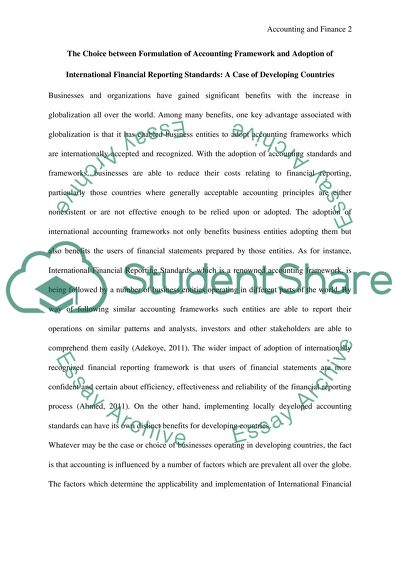Cite this document
(“The Choice between Formulation of Accounting Framework and Adoption of Essay”, n.d.)
Retrieved from https://studentshare.org/finance-accounting/1404538-international-financial-reporting
Retrieved from https://studentshare.org/finance-accounting/1404538-international-financial-reporting
(The Choice Between Formulation of Accounting Framework and Adoption of Essay)
https://studentshare.org/finance-accounting/1404538-international-financial-reporting.
https://studentshare.org/finance-accounting/1404538-international-financial-reporting.
“The Choice Between Formulation of Accounting Framework and Adoption of Essay”, n.d. https://studentshare.org/finance-accounting/1404538-international-financial-reporting.


